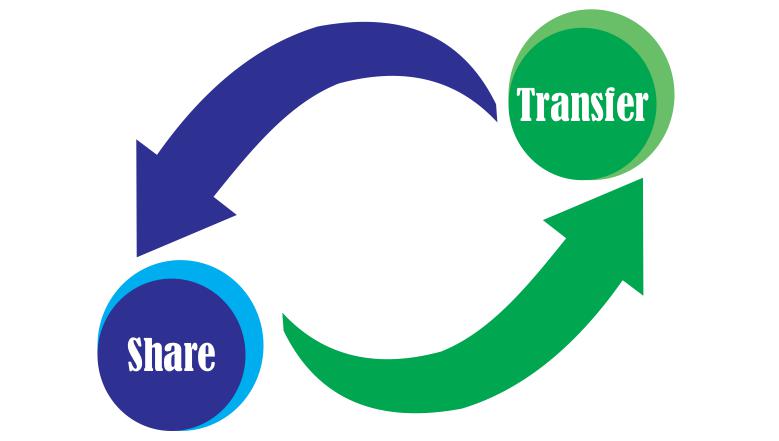
Share Transfer Transimission
Introduction
Streamline Share Transfers and Transmission with Expert Guidance from CorpIQ
At CorpIQ, we recognize that the transfer and transmission of shares are key transactions within any company, often marking significant shifts in ownership and management. Whether due to sale, succession, or other circumstances, these processes require meticulous attention to detail to ensure legal validity and compliance. CorpIQ is dedicated to providing a comprehensive service that makes share transfer and transmission straightforward and compliant with the Companies Act, 2013.
For detailed assistance and to discuss your specific needs regarding shares transfer or transmission, please contact CorpIQ directly. Our expert team is ready to provide personalized and efficient service to ensure your transactions are handled smoothly and in compliance with all legal requirements.
CorpIQ'S SHARES TRANSFER AND TRANSMISSION SERVICES INCLUDE
- Transfer Execution: We facilitate the entire shares transfer process, including the preparation of share transfer deeds, obtaining board approval, and ensuring proper endorsement of share certificates.
- Transmission Handling: In cases of transmission due to succession, inheritance, or insolvency, CorpIQ expertly handles the necessary documentation and procedural formalities, ensuring a smooth transition of ownership.
- Regulatory Compliance: Our team ensures that all share transfer and transmission activities are conducted in compliance with relevant legal requirements, avoiding potential disputes or legal challenges.
- Record Maintenance: CorpIQ assists in updating the company's statutory registers, including the Register of Members, to accurately reflect the changes in share ownership.
- Shareholder Communication: We manage communications with all parties involved, including outgoing and incoming shareholders, to ensure clarity and consensus throughout the transaction.
- End-to-End Support: From valuation of shares for transfer purposes to filing the necessary forms with the Registrar of Companies (ROC), CorpIQ provides end-to-end support to ensure the transaction is completed efficiently.
With CorpIQ, navigate the complexities of share transfer and transmission with confidence. Our service is tailored to ensure that all aspects of your transaction are handled professionally, respecting the legal framework and the interests of all stakeholders involved.
LEGAL SIDE OF SHARES TRANSFER AND TRANSMISSION
In the case of shares, a transfer occurs when a shareholder moves them voluntarily and according to a written agreement. Shares are said to be transferred when they are moved voluntarily by the shareholder. Term "transmission of shares" refers to the movement of shares upon death, insolvency, or insanity of the shareholder.
How does a share transfer work?
When shares are transferred from one person (the transferor) to another person (the transferee), it is known as a transfer of shares. A Private limited companies' shares cannot be transferred as easily as those of a public company unless the company has a good reason to do so.
How does share transmission work?
Share Trinsane or occurs when the original owner of a share has passed away, becomes insane, or is insolvent at the time of the transfer. It is not necessary for the transferee to execute a transfer document to transfer rights to the shares, and the transfer is recorded only if the transferee provides evidence that the shares are theirs. A legal representative will receive the shares upon the death of the holder, and the official assignee will receive them if the holder becomes insolvent.
Features
- A transfer is the act of moving an asset. Securities can be moved voluntarily or operationally by law.
- A share transfer is a voluntary act undertaken by the holder of the shares through a contract.
- On the other hand, shares are transmitted on death or insolvency or lunacy of the holder on operation of the law.
- There is no restriction on the transfer of shares of a public company unless the company has a valid reason to do so.
- Certain exceptions apply to the transferability of shares in a private limited company.
Documets Required
For the transfer of shares, the following documents are required:
- A self-attested copy of PAN card.
- Successor's signature.
- A copy of the death certificate.
- Probate of Will or Letter of Administration or Court order
- Certificate of Succession
COMPANY ACT, 2013: PROCEDURE FOR TRANSFER AND TRANSMISSION OF SHARES
- Section 56 of the Companies Act provides for the transfer of shares:
- In order for the transfer to take effect, a proper instrument of transfer, in Form SH-4, as specified in sub-rule 1 of Rule 11 of the Companies (Share Capital & Debenture) Rules 2014, must be executed by or on behalf of the transferor and the transferee and include all required information, including the name, address, and occupation, if any, of the transferee.
- The document must be presented to the company within 60 days of the date of execution, together with a certificate of securities or letter of allocation of securities, as appropriate.
- According to sub-rule 3 of Rule 11 of the Companies (Share Capital and Debentures) Rules 2014, when the transferor submits an application for the transfer of partially paid shares, the company notifies the transferee using Form SH-5, and the transferee has two weeks to withdraw his or her objections.
- Section 56 of the Companies Act provides for the transmission of shares:
- It will be affected when the application for the transmission of shares and the necessary documentation is approved.
- It is not necessary to execute a transfer deed when sharing shares are transferred.
- In both cases, there is a time limit for delivering a certificate:
It is the company's obligation to deliver certificates of all securities transferred or transmitted within one month of receiving the instrument of transfer, or the intimation of transmission, if applicable, unless a law or an order of a court, tribunal, or other authority prohibits it.
- In case of non-compliance, penalties will be imposed:
In the event that the company fails to comply with the above, it shall be liable for a fine not less than Rs. 25,000 but not less than Rs. 5,00,000, and any company officer who fails to comply with the above shall be liable for a fine not less than Rs.10,000, but not less than Rs.1,00,000.
While the transfer of shares and transmission of shares intend a change in ownership of the title of the shares, there is a distinction between a voluntary transfer of shares initiated by the transferee or the transferor and a legal representative or receiver that initiates the transmission of shares by law.




